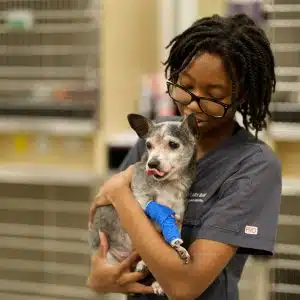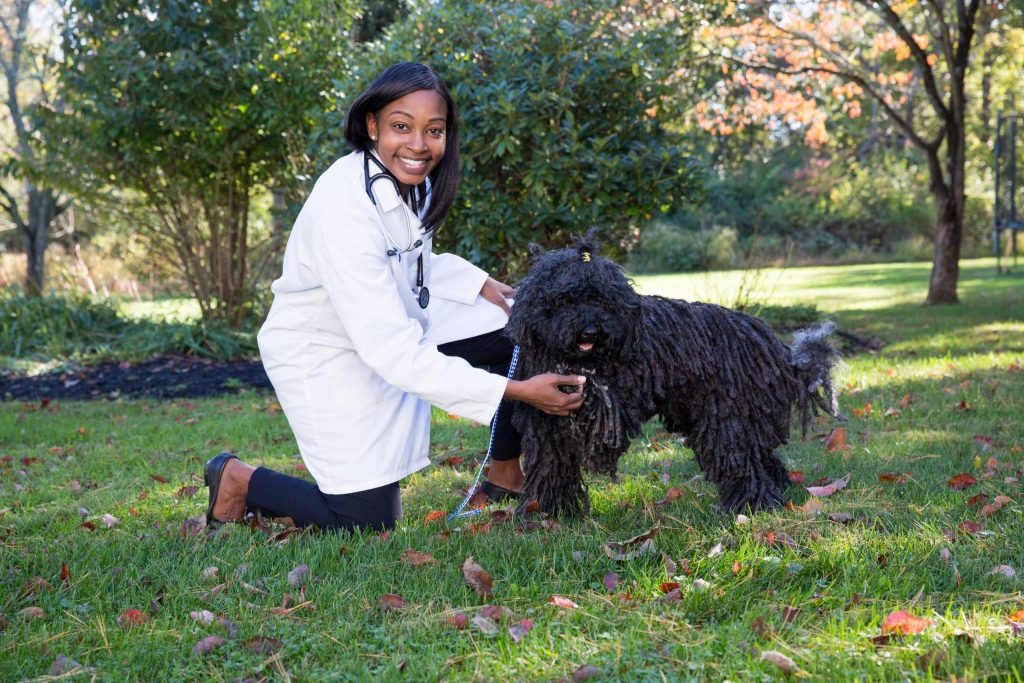Just How a Vet Oncologist Can Help Improve Your Family pet's Quality of Life
Vet oncologists specialize in the medical diagnosis and treatment of cancer cells in animals, playing a crucial function in enhancing their high quality of life. They develop personalized therapy plans that attend to the unique demands of each pet. Via advanced diagnostics and targeted therapies, these professionals intend to handle signs efficiently. Nevertheless, the trip does not finish there. Checking out the complete spectrum of treatment options discloses more regarding how these professionals can make a significant distinction.

Understanding the Function of a Vet Oncologist

In addition to diagnosis, vet oncologists establish detailed treatment strategies customized to the requirements of each pet. These techniques might consist of radiation treatment, radiation therapy, and surgical treatments, aimed at not just expanding survival however also improving the general lifestyle. They offer palliative care, concentrating on pain administration and convenience for pet dogs dealing with terminal medical diagnoses. By working together with pet dog owners, veterinary oncologists ensure that animals obtain one of the most caring and reliable treatment feasible during their cancer cells trip.
Tailored Treatment Plans for Your Animal
When a family pet is identified with cancer cells, establishing a customized therapy strategy comes to be crucial for resolving their unique demands and situations. A vet oncologist carefully assesses the type of cancer cells, its phase, and the total wellness of the family pet. This comprehensive assessment permits the creation of a personalized strategy that might consist of a mix of surgery, radiation treatment, and radiation treatment.
The oncologist additionally thinks about the family pet owner's preferences and way of living, ensuring that the strategy aligns with their goals for their family pet's care. Veterinary Cancer Specialist. Treatment plans are not fixed; they are frequently evaluated and readjusted based on the family pet's action and any arising requirements. By focusing on customized treatment, vet oncologists aim to enhance the efficiency of therapies while keeping the animal's high quality of life. This customized strategy fosters a much better understanding of the condition, equipping pet dog owners to make enlightened choices regarding their beloved friends' health
Handling Signs And Symptoms and Adverse Effects
Taking care of the signs and symptoms and negative effects of cancer therapy is an important component of veterinary oncology. Vet oncologists use a variety of approaches to reduce discomfort and enhance the total health of pets going through treatment. This may include making use of anti-nausea drugs to fight throwing up and anorexia nervosa, which prevail side impacts of radiation treatment. Discomfort monitoring is also focused on, commonly entailing the prescription of anesthetics customized to the pet's particular demands.
Additionally, oncologists may advise dietary modifications, incorporating top notch, conveniently absorbable foods to support nutritional intake. Keeping an eye on blood job is vital to detect any adverse responses to treatment early, permitting timely treatments. Normal follow-ups allow the veterinary team to analyze the pet dog's action to treatment and make necessary modifications. Via these detailed strategies, vet oncologists intend to improve the quality of life for pet dogs facing cancer cells therapy difficulties.
Palliative Care and Convenience Actions
Palliative care plays an important duty in enhancing the lifestyle for animals detected with cancer cells, concentrating on comfort and psychological support as opposed to curative therapy. Vet oncologists prioritize discomfort management, ensuring that pets experience marginal pain during their illness. This includes making use of analgesics, anti-nausea medicines, and other therapies customized to individual requirements.
In enhancement to pharmacological interventions, environmental alterations can significantly enhance a family pet's lifestyle. Creating a tranquility, comfy space with soft bed linen and very easy accessibility to food and water can ease tension. Nutritional assistance is also important; oncologists might recommend customized diet regimens that deal with the family pet's demands and preferences.
Psychological support for both the pet dog and its proprietors is crucial. Veterinary oncologists offer advice on coping methods, aiding households browse the psychological obstacles that go along with a cancer cells diagnosis. Ultimately, palliative treatment purposes to guarantee that pets receive the dignity and comfort they deserve.
Collaborating With Your Routine Veterinarian
Collaboration with a routine vet is important for enhancing the care of animals with cancer, as this collaboration assures a thorough strategy to official source therapy and lifestyle. The routine veterinarian commonly has a comprehensive understanding of the pet dog's case history, which is crucial when formulating a therapy strategy. They can successfully communicate with the vet oncologist, making certain that all elements of the pet's health are considered.
This cooperation permits collaborated care, which might consist of routine check-ups, keeping track of negative effects, and adjusting drugs as needed. Normal veterinarians can additionally provide psychological assistance to pet dog proprietors, helping them browse the complexities of cancer cells treatment - Veterinary Oncology Services. By working very closely with vet oncologists, they can promote a smooth change between different sorts of care, ensuring that animals receive one of the most effective therapies while keeping their convenience and wellness throughout the process. With each other, they enhance the total quality of life for family pets encountering cancer cells
Often Asked Questions

What Kinds of Cancers Do Veterinary Oncologists Commonly Treat in Family Pets?
Veterinary oncologists typically deal with numerous cancers cells in pets, consisting of lymphoma, pole cell growths, osteosarcoma, and soft cells sarcomas. These specialists employ sophisticated analysis strategies and treatment alternatives to resolve the certain demands of each animal.
How Can I Prepare My Animal for a Vet Oncology Consultation?
Preparing a pet for a veterinary oncology visit includes event clinical documents, keeping in mind symptoms, and preparing questions. Ensuring the pet dog is comfortable and calm throughout traveling can additionally significantly improve the overall experience and consultation performance.
Are There Any Alternative Treatments for Family Pets With Cancer?
Alternate treatments for family pets with cancer usually include acupuncture, natural medicine, and dietary assistance. These approaches may match traditional therapies, possibly improving total health and my response supplying supportive care during the pet dog's cancer cells journey.
Just how Commonly Should My Family Pet See the Veterinary Oncologist?
The frequency of check outs to a vet oncologist generally relies on the pet dog's certain problem and treatment strategy. Routine assessments might be advised every couple of weeks or months to keep track of progress and change therapies accordingly.
What Prices Are Related To Vet Oncology Services?
Expenses connected with vet oncology solutions can vary extensively, including preliminary consultations, analysis examinations, treatment strategies, and ongoing treatment. Veterinary Oncologist. Animal find out here now proprietors must plan for prospective expenditures that reflect the complexity and period of the therapy needed
Veterinary oncologists specialize in the medical diagnosis and treatment of cancer cells in animals, playing an important duty in improving their top quality of life. Lots of family pet proprietors might not be acquainted with the ins and outs of veterinary oncology, recognizing the role of a veterinary oncologist is essential for handling cancer cells in pet dogs. The oncologist also considers the pet dog owner's preferences and way of living, guaranteeing that the plan straightens with their goals for their pet's care. By focusing on individualized treatment, veterinary oncologists intend to enhance the efficiency of therapies while preserving the animal's quality of life. By working carefully with vet oncologists, they can facilitate a seamless change in between various types of care, making certain that pets obtain the most efficient therapies while maintaining their comfort and wellness throughout the process.